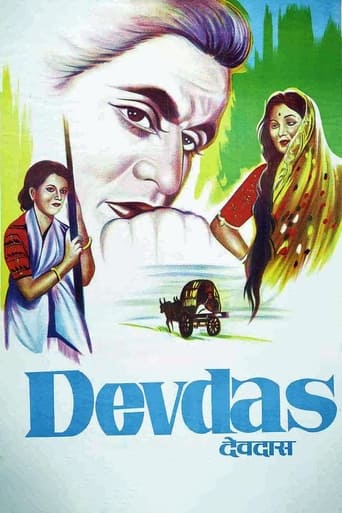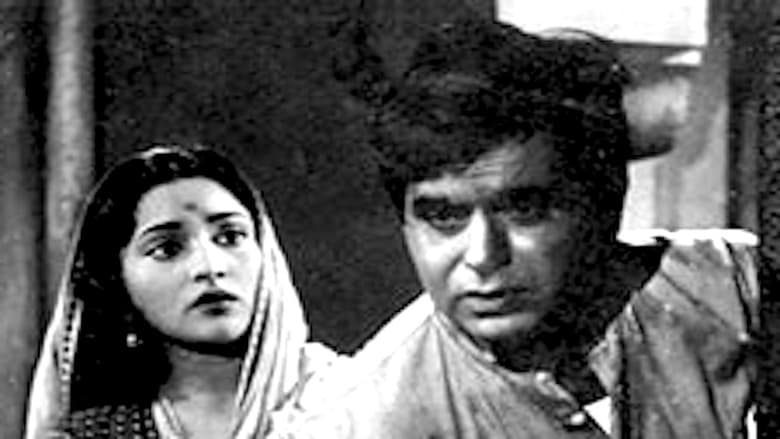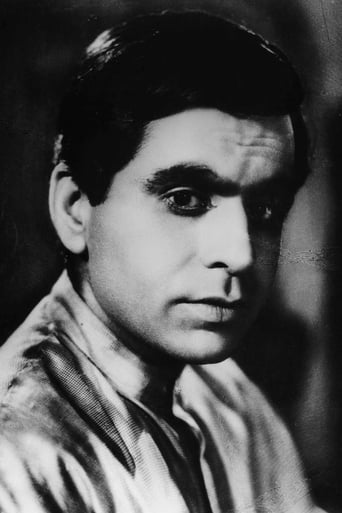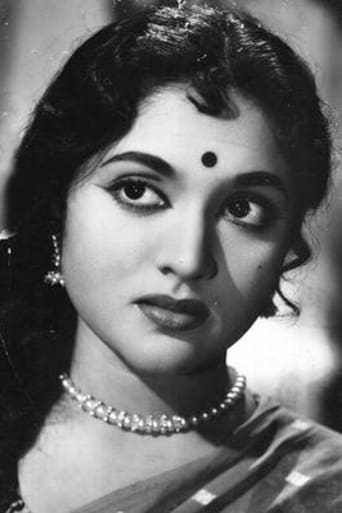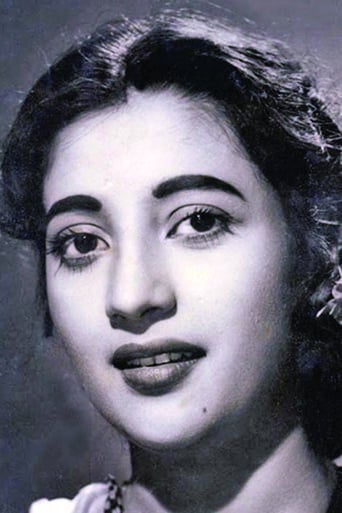Devdas (1955)
Childhood sweethearts grow up in a small village with a love-hate relationship which changes to love when they mature.
Watch Trailer
Cast


Reviews
One of my all time favorites.
Let's be realistic.
It’s an especially fun movie from a director and cast who are clearly having a good time allowing themselves to let loose.
All of these films share one commonality, that being a kind of emotional center that humanizes a cast of monsters.
I'm writing - and viewed, this, as an English non-Indian, who simply loves film and is venturing from more obvious World Cinema, into the more obscure and possibly more rewarding.So, I'm more concerned with the story than who's playing whom and such. I came across the story, Devdas, via the 2002, very colourful and (at the time, may still be the case) most expensive Indian film, which is a feast to both eye and ear. I'll review that one, once I've re-watched my new DVD of it, having only seen on TV.The universal and accessible story, written as early as 1917 is of two childhood sweethearts - Parvati and the titular Devdas, who grow up but go their separate ways. Devdas flees to Calcutta and seeking the high- life, frequents a brothel and starts drinking; to the extent that he comes alcoholic. She marries a wealthy husband. They both regret their parting and long for what could have been. Devdas befriends a pretty prostitute - Chandramukhi - who desperately wants to love the Devdas that she inwardly sees, but cannot reach. His loves are for his childhood sweetheart - and the alcohol, only. Add family issues and you've got a nice pot-boiler of emotion, drama and pathos throughout the 160 minute run-time.Many think, wrongly, that Indian cinema is nothing but Bollywood - lightweight singing and dancing and that serious issues on Life are either treated in a dismissive way, or not at all. In many ways, this story could be Shakespearian, or made for the Golden era of Hollywood. What makes it endlessly fascinating is of course the different culture, from marriage and fidelity to the simple poetic beauty in the landscape and costume.There is some singing and dancing in this 1955 black & white version, but little compared to a Bollywood production and much of what there is are the rituals of the working ladies that venture into Devdas' sordid existence.Naturally, this monochrome - and much earlier film than the 2002 one, is poorer in picture and sound quality. Mine (cover exactly as shown) had a varying faint green/olive colour cast, had quite a few blemishes picked up through time and was slightly soft. The sound is OK, if you're not fussy. However, I know that this quality is typical, for Indian film of this period. However, one gets used to it and almost comforted by it, being more intense, somehow. At least is doesn't look like a video- transfer, thankfully.From what I gather, many agree that Bimal Roy's film, here, is the definitive adaptation, though it was made earlier, the first of which was in 1928! For popularists and lovers of colour and spectacle, go for the 2002 glossy version. If the story and the acting and a purer form of beauty is what you're after, then this one will have you enthralled. Though the film itself is a four and half starrer, I've not rounded it up, due to transfer quality issue.
I first saw this movie in 1970 and have to this day never forgotten the haunting and beautifully tuned climax.Many years later the recent Shah Rukh blockbuster came to view which to my mind defamed the essence and spirit of the tale.Bimal Roy's dignified classic took one to the root of the matter.It is hard to imagine a film with so much realism.I have never seen an actor so deeply immersed in the character he's playing like Dilip Kumar and to bring that piece of fiction to life.Suchitra Sen embodies her role beautifully but Vyjantimala is simply superb.The other parts are skillfully played; an attribute to sound casting.The photography and music like in all Bimal Roy films are an accolade to nature.Forget about the lavish Khan extravaganza and see Devdas as it really should be : a man who gives up all even his life for his bitterment but still evokes admiration from the world.I had seen the Bengali Uttam Kumar in some films and it is my regret he never played this role but Dilip Kumar will never be bettered.I felt he was totally lost in the character!!!
Like "Gone With The Wind" and Wuthering Heights, Devdas is based on a literary classic and is a landmark in cinema. Pre-independence Bengal and Calcutta come alive in this movie but it is not a pretty picture. The story itself verges on bathos, with a young man, Devdas (Kumar), drinking himself to death after his childhood chum and beloved Paro (Sen) marries another (older) wealthy man. That marriage happens only because Devdas' wealthy father and older brother refused to allow him to marry Paro, the middle caste girl next door. The pain is, she loves Devdas too, but cannot act on it.The parallel story has Chandramukhi (Vyjayanthimala), a dancer & call girl from Calcutta, falling in love with Devdas as well while he is drinking away his sorrows. But he is so focused on Paro and so negatively judges Chandramukhi's profession, he cannot notice her. When Devdas finally appreciates Chandramukhi's devotion, for her own safety he dare not take her home.This is a sorrowful classic, but with the overwrought pain, it plays more like "Wuthering Heights" than like "Gone With the Wind".
This film was just excellent on all counts, be it direction, cinematography, acting or music. A classic produced and directed by Bimal Roy. And what performances ! Motilal, Dilip Kumar, Vyjayanthimala and Suchitra Sen, all excelled. And what a musical score ! Talat Mahmood's "Mitwa, lagi re yeh kaisi" and "Kisko khabar thi, kisko yakeen tha, aise bhi din aayenge" are among his best numbers. So are Lata Mangeshkar's "Jise tu qabool karle", "O' jaane wale, ruk ja koi dam" and "Ab aage teri marzi" are excellent numbers. Two other songs, "Woh na aayenge palat kar, chahe lakh ham bulaayen", sung by Mubarak Begum and "Manzil ki chaah mein" are haunting songs.

